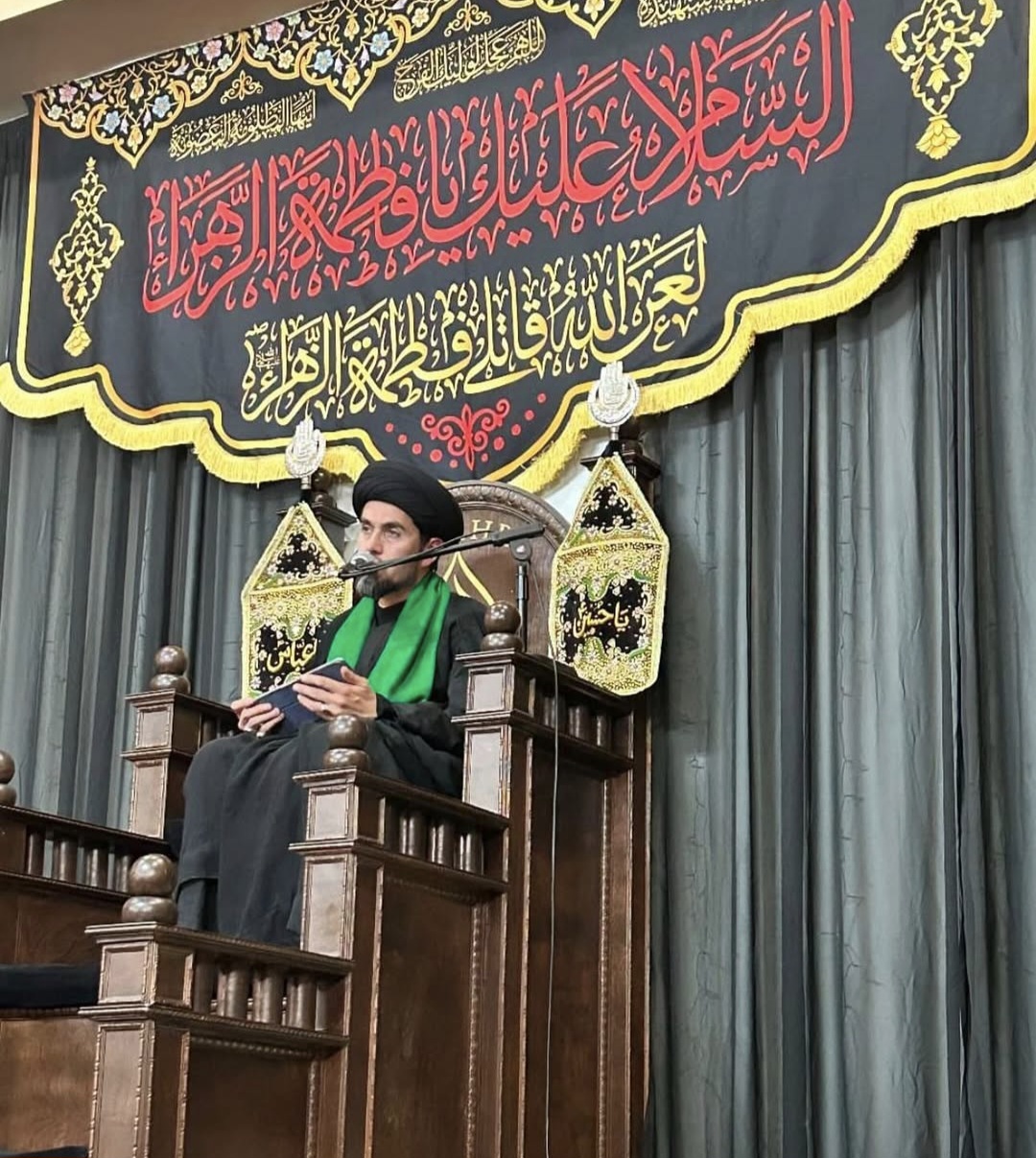Sayed Abazar Wahidi Featured in Exclusive Interview on Faith, Creativity, and Purpose

California, USA, 21st February 2025, ZEX PR WIRE, Islamic scholar, filmmaker, and spiritual guide Sayed Abazar Wahidi has been featured in an exclusive online interview, where he shares deep insights into the intersection of faith and creativity. Wahidi, known for his ability to bridge Islamic teachings with modern storytelling, speaks candidly about his journey, daily practices, and the role of digital media in strengthening faith.
Originally from Afghanistan, Wahidi spent over 12 years in Qom, Iran, studying Islamic theology and completing advanced Dars Kharij courses. Now based in California, he serves as the Resident Alim at the Islamic Center of Fatimiyyah in Hayward, where he focuses on fostering intergenerational understanding and making Islamic teachings more accessible to younger generations. In addition to his theological expertise, he holds a master’s degree in film and television writing and directing, which allows him to creatively share the message of Islam through storytelling and media.
In the interview, Wahidi reflects on faith as a foundation for daily life, sharing how his mornings begin before Fajr prayer when he gets up for night prayer (Tahajjud also known as Salatul Layl that is highly recommended), setting a spiritual tone for his work in education, community leadership, and creative projects. When asked how he brings ideas to life, he explains, “Ideas begin as reflections—whether they come from a Quranic verse, a personal experience, or a story someone shares with me. I write them down and let them evolve naturally.”
A significant part of the discussion explores the role of digital storytelling in making Islamic teachings more engaging. Wahidi expresses his enthusiasm for modern media, saying, “The rise of meaningful digital storytelling excites me. More young people are using creative platforms like film, podcasts, and social media to explore and share their faith in authentic ways.”
Throughout the interview, Wahidi provides practical advice on productivity, growth, and overcoming challenges. He discusses journaling as a tool for self-reflection, emphasizing how writing daily thoughts helps him stay organized and focused. When asked about a piece of advice he would give to his younger self, he replies, “Trust the process. Every experience—whether in Qom, California, or the film industry—shaped who I am today. Be patient with personal growth, and never underestimate the power of consistent small steps toward a bigger vision.”
One of the most compelling moments in the interview is his take on spirituality and creativity. He challenges the notion that faith must be rigid and formal, stating, “Spirituality thrives when it is expressed creatively—through art, film, poetry, and storytelling. These forms of expression allow us to feel, reflect, and connect with faith on a personal level.”
Wahidi also shares an exciting business idea, encouraging the development of an interactive digital Quranic storytelling platform that combines historical Islamic stories with short films, animations, and discussion forums to engage youth in an innovative way.
This thought-provoking interview offers a unique perspective on faith in modern times, emphasizing adaptability, digital engagement, and the importance of mindful reflection. Sayed Abazar Wahidi’s insights serve as an inspiration for those seeking to integrate spirituality into their daily lives while embracing creativity as a tool for deeper understanding.
About Sayed Abazar Wahidi
Sayed Abazar Wahidi is a California-based Islamic scholar, filmmaker, Quran hafiz, and spiritual guide known for blending Islamic tradition with modern storytelling. Originally from Afghanistan, he spent over 12 years studying Islamic theology in Qom, Iran. He memorized the Quran in its entirety at the age of 12 that he accomplished in less than 1 year. Currently, he serves as the Resident Alim at the Islamic Center of Fatimiyyah in Hayward, CA, working to make Islamic teachings accessible to younger generations. Holding a master’s degree in film and television writing and directing, he documents transformative spiritual journeys, such as the Arbaeen pilgrimage, and promotes unity, compassion, and justice through his creative work.
To read the full interview, click here.